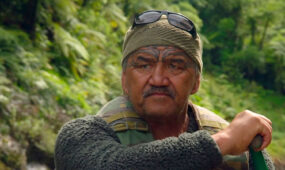Film review: Charlie’s Angels
Film & TV
Charlie’s Angels has been given a fresh and more feminist-friendly reboot at the hands of writer-director Elizabeth Banks. Declan Durrant looks at how it stacks up to its franchise predecessors.

Flashback to the year 2000 – the release of the first Charlie’s Angels movie adapted from the ’70s television show of the same name.
The cast – Lucy Liu, Cameron Diaz and Drew Barrymore – were all at the height of their fame. The mission was simple: reboot Charlie’s Angels and create a franchise with Matrix-chic bullet-time action and a gaudy aesthetic. Oh, and who could forget the Destiny’s Child lead single, “Independent Women”? It was an absolute hit.
The movie was a pop-culture phenomenon that also featured a host of other stars, including Bill Murray, Sam Rockwell, Tim Curry, and Crispin Glover as the creepy Thin Man. Music, fun and excitement abounded.
Coming out of the cinema 19 years later (and 16 years after the sequel, Charlie’s Angels: Full Throttle), the new Elizabeth Banks-directed film isn’t a rehash (like, for example, the 2016 Ghostbusters film), but nor does it offer an entirely different experience.
It feels like a course correction for the Angels franchise – a more grounded, yet still silly 2019 version in which the sexualised silliness is replaced with a solid night of entertainment and female heroism.
Finally, we have a Charlie’s Angels written and directed by a woman, and the effect is felt.
The plot centres on a race against time after the theft of a highly powerful new energy source with military capabilities. The device uses electromagnets to create energy, as well as to induce seizures in humans, and is whisked from set-piece to set-piece with our cast in tow.
The film is of its time, with themes of whistle-blowing, renewable energy and girl power, although they’re not overtly laboured.
This time, the Angels are less one-dimensional. Rebellious Sabina – played as a fun, comedic support by Kirsten Stewart – is the standout of the bunch, and is joined by militant tough-girl Jane (Ella Balinska) and scientist whistleblower Elena (Naomi Scott).

Get InReview in your inbox – free each Saturday. Local arts and culture – covered.
Thanks for signing up to the InReview newsletter.
Banks herself gives an enjoyable performance as the first female Bosley. Coming from a comedic background, however, she often seems out of her depth in action scenes, which include quick cuts that at times can almost give the audience motion sickness.
Early on, as the group takes on assassin Hodak (played by Jonathan Tucker in an obvious homage to Glover’s Thin Man), the action is choppy and difficult to follow, giving no space for the actors to work. This is an unfortunately common occurrence throughout the film.
Despite this, Charlie’s Angels is carried by its exuberant, costume-changing espionage and the obvious enjoyment on the faces of the cast. Its heart shines through and it offers an enjoyable ride that almost certainly passes the “Is it fun?” test.
Support local arts journalism
Your support will help us continue the important work of InReview in publishing free professional journalism that celebrates, interrogates and amplifies arts and culture in South Australia.
Donate Here




